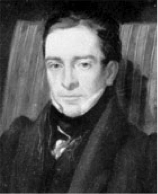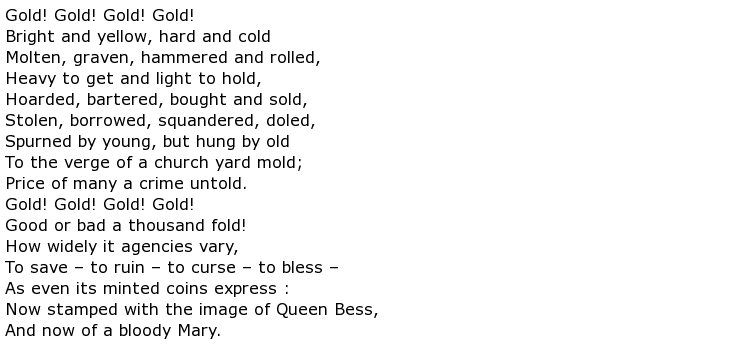 Thomas Hood was a British poet, journalist and humorist and his often irreverent, satirical style of writing almost seems out of place for the time in which he lived. If you can imagine transporting the 20th Century writers of Private Eye or Punch back to the early 19th century then you would get some idea of Hood’s modus operandi. He made fun of serious matters like death and politics, using words and amusing illustrations to grab the attention of his readers.
Thomas Hood was a British poet, journalist and humorist and his often irreverent, satirical style of writing almost seems out of place for the time in which he lived. If you can imagine transporting the 20th Century writers of Private Eye or Punch back to the early 19th century then you would get some idea of Hood’s modus operandi. He made fun of serious matters like death and politics, using words and amusing illustrations to grab the attention of his readers.
Hood was born in London in 1789, the son of a bookshop owner also called Thomas Hood who dealt in new editions of old books for dealers and customers in America. His family were descended from Scottish farmers from Dundee in the north east of the country. Hood had private education in Islington but left this at the age of 14 to enter into employment at a counting house. His health was never good and this profession made it worse so he left and became an engraver, still in the city of London. Not surprisingly this did nothing to improve his health so he was sent to Dundee.
Here he lived a healthier, mostly outdoors kind of life for a while but this was punctuated with long periods of serious reading. He married relatively late in life at the age of 35 and was soon collaborating with one J H Reynolds, his brother in law, on an amusing book of poems called Odes and Addresses to Great People. The book attracted the favourable attention of S T Coleridge and, suitably encouraged, he followed this work with The Plea of the Midsummer Fairies in 1827.
The latter publication was fairly serious writing but the public did not think a great deal of it, preferring his already well known humorous writing. Hood was responsible for a satirical publication called the Comic Annual which started in 1830. Like the modern-day Private Eye, his Annual addressed events of the day using caricatures of the people involved. It was all written without malice though and readers were kept amused by his constant use of puns such as:

Widely regarded as one his best humorous works, Miss Kilmansegg and Her Precious Leg was serialised in the New Monthly Magazine from October 1840 to February 1841. This was regarded as quite a sinister piece of work and could probably be related to the term “black comedy” which was a late 20th century invention of course. It was about a girl who lost a leg and insisted on having a false leg made of gold, only to fall prey to predators who tried to relieve her of her “precious leg”. Here is a short passage, not necessarily humorous, but a good illustration of what gold means to us:

Hood did produce some socially aware, serious pieces such as The Song of the Shirt, The Lay of the Labourer and The Bridge of Sighs, all around 1844. These were seen as models of social protest by other writers across Europe and the United States, speaking out against the inhuman conditions that ordinary people lived and worked in at that time.
Thomas Hood died in London in May 1845, aged 56.

